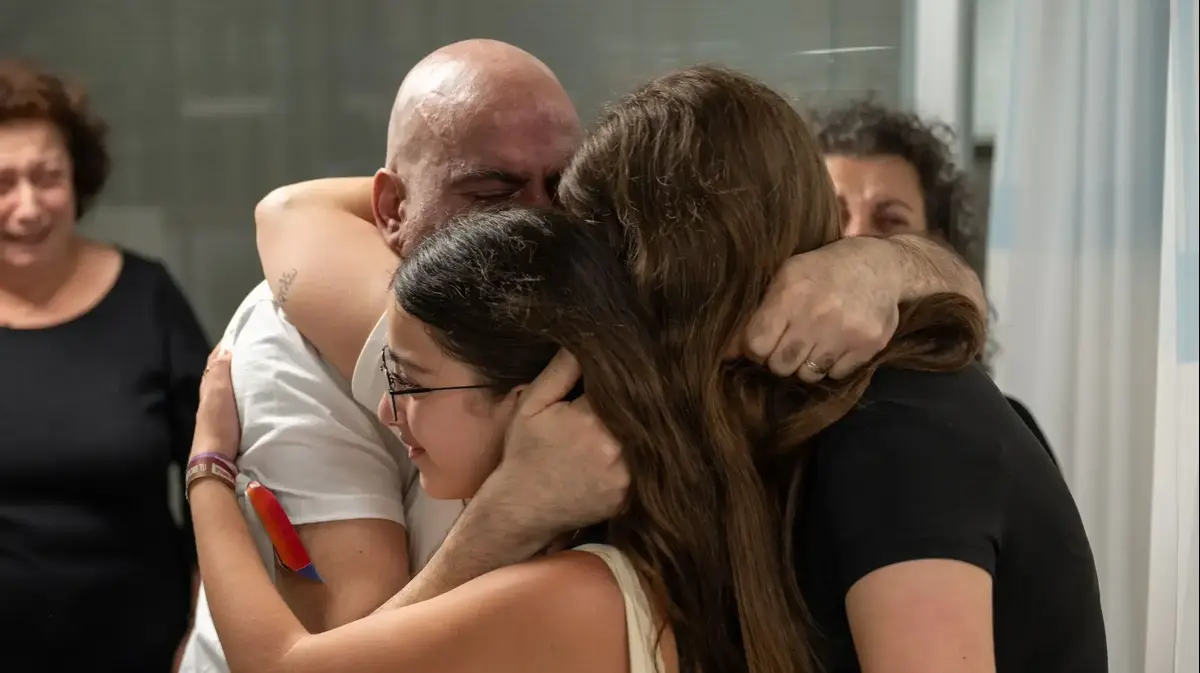Operation Arnon: A Hostage Rescue Amidst Conflict
Operation Arnon, a meticulously planned Israeli military endeavor, successfully rescued four hostages from central Gaza. While the operation brought jubilation for the families of the freed hostages, it also raised pressing concerns about the broader consequences and the cost in human lives.
The mission, extensively prepared over several weeks, mobilized hundreds of troops from various branches of the Israeli forces. It culminated on a tense Saturday morning with Israeli forces storming two critical buildings in the Nuseirat refugee camp, achieving their objective but resulting in significant collateral damage. The hostages, including Noa Argamani, Almog Meir Jan, Andrey Kozlov, and Shlomi Ziv, were liberated after eight harrowing months in captivity. However, the operation's aftermath cast a shadow: an Israeli police officer was killed, and Gaza officials reported over 200 Palestinian casualties, a figure which CNN could not independently verify.
Admiral Daniel Hagari, speaking for the Israeli Defense Forces (IDF), emphasized the tightrope walk the forces had to balance, between achieving the element of surprise and ensuring the safety of the hostages. The troops faced heavy fire both during the raid and while exiting Gaza. Despite the successful rescue, the operation highlighted the complex and often devastating human cost that accompanies such missions. This marked the third such operation, following rescues in October of IDF Corporal Ori Megidish and in February of Fernando Marman and Louis Har from Rafah.
The Complex Landscape of Israeli-Palestinian Relations
The dramatic rescue operation also sparked a broader discourse on the ongoing conflict and the challenges facing both Israelis and Palestinians. As jubilant reunions took place, questions arose about the appropriateness of the actions taken and the balance between military objectives and humanitarian costs. Palestinian leader Mahmoud Abbas condemned the operation as a 'horrific massacre' and called for an emergency session of the UN Security Council to address the violence in Nuseirat.
The operation did not exist in isolation; it was set against a backdrop of stalled negotiations over a ceasefire and prisoner exchange agreements. With over a million Palestinians displaced and sheltering in Rafah, the intensifying ground operations in Gaza, particularly central Rafah, have led to international condemnation. Abbas’s call for international intervention underscores the deep divides and the urgent need for diplomatic solutions. The recent events reiterated the perilous nature of life for many in the region and the pressing need for lasting peace.
Looking Ahead: The Path to Peace and Stability
The future of Israel and Palestine remains precarious, with deep-seated animosities and differing visions for the way forward. The writer draws a parallel to the fairy tale of Hansel and Gretel, suggesting that like the lost children in the forest, Israelis and Palestinians must look beyond immediate conflicts and seek higher ground for a resolution. The two possible paths are starkly contrasting: one towards entrenched conflict and national-populism, the other towards long-term peace, requiring patience and mutual understanding.
Achieving peace will necessitate a complete dismissal of extreme ideologies that currently dominate the discourse. The end of hostilities could begin only with the removal of leaders embodying these extremes, like Netanyahu and Sinwar, the article argues. Only then, similar to the fairy tale’s resolution, can both peoples coexist peacefully. The need for a comprehensive strategy that goes beyond military prowess, focusing instead on sustainable peace and stability, is paramount.
- Lessons from past hostage rescues highlight both the potential for successful tactical operations and the sobering reminder of the human cost involved. These missions require incredible bravery and military precision but often leave lasting scars on the communities affected by the collateral damage.
- In-depth negotiations and robust international diplomatic efforts are crucial to addressing the root causes of the conflict and fostering a stable environment for both Israelis and Palestinians. The role of international organizations like the UN in mediating and overseeing ceasefire agreements and humanitarian aid cannot be overstated.
- Understanding the socio-political complexities requires a comprehensive approach that considers historical contexts, power dynamics, and the aspirations of both populations. Future solutions must prioritize human rights and mutual security for long-term peace.






